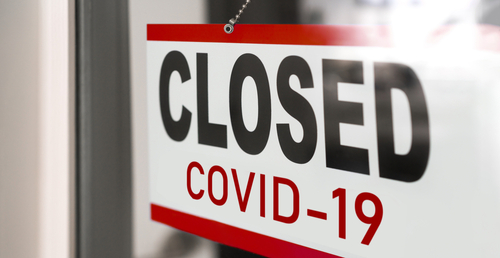
State Sens. Camera Bartolotta (R-46) and John DiSanto (R-15) on Tuesday criticized Gov. Tom Wolf’s leadership during the COVID-19 pandemic following the release of a U.S. Bureau of Labor Statistics survey that showed Pennsylvania faced the second-highest percentage of mandated business closures in the nation.
The U.S. Bureau of Labor Statistics’ Business Response Survey reflected how U.S. businesses changed their operations and employment since the onset of the coronavirus pandemic. In comparisons by state, the survey results showed that Pennsylvania suffered the second-highest percentage of mandated business closures in the country, behind Michigan at 32 percent. The national rate was reported at 19 percent.
“We all recognize that certain precautions must be taken during a pandemic, but Governor Wolf’s mismanagement of the response to this crisis over the past several months is a big reason why many Pennsylvanians have zero faith in the decisions he is making now,” said Bartolotta, who chaired the Senate Labor and Industry Committee during the 2019-20 Legislative Session.
The survey also showed that Pennsylvania ranked outside of the top 20 in terms of the percentage of businesses that received a loan or grant tied to payroll during the pandemic. Instead, Bartolotta said, displaced workers were forced into an outdated Unemployment Compensation system.
“The statistics underscore what Pennsylvania employers and workers have known for some time: Governor Wolf has mismanaged the response to this pandemic, and his unilateral approach to governing caused damage not seen in other states,” DiSanto said.
Both senators noted that Wolf’s mandated business closures shuttered several industries that were permitted to safely operate in most other states, leading to Pennsylvania’s unemployment rate of 7.3 percent still lagging behind the national average of 6.9 percent.
“The first round of Governor Wolf’s business closures went on much longer than public health required, leaving surviving businesses and the economy in a weak position to respond to his latest round of restrictions,” DiSanto said. “And despite these extreme and inconsistent restrictions, Pennsylvania still ranks among the worst states in the number of COVID-19 deaths. We must continue our efforts in 2021 to prevent the governor from causing more damage through his unilateral actions.”
Pennsylvania currently has the seventh-highest number in total coronavirus deaths in the country and the 15th-highest death rate in the country as a percentage of population.
“This is why responding to emergencies should be a collaborative effort,” Bartolotta said. “Lawmakers, county and local officials, business leaders and public health experts could have worked with the governor to reopen our economy on a more reasonable schedule during the spring and summer.”
The Senate Majority Policy Committee, with the help of Bartolotta and DiSanto, held two public workshop discussions in the spring and summer to examine steps local businesses could take to safely reopen. Stakeholder testimony regarding extensive mitigation efforts businesses were taking to follow public health and safety guidelines was largely ignored by the Wolf Administration, Bartolotta said.
“Instead, businesses were forced to remain closed much longer than necessary, and the businesses that were strong enough to survive the early months of the pandemic now face even greater threats of bankruptcy and financial ruin because of his new shutdowns,” she said. “We have long said that we can protect lives and livelihoods, and these goals do not need to be mutually exclusive. Unfortunately, the governor’s go-it-alone, one-size-fits-all approach has protected neither lives nor livelihoods.”
Data for the national survey was collected from July 20 through Sept. 30 and only data from private sector establishments was collected for the purpose of the survey.